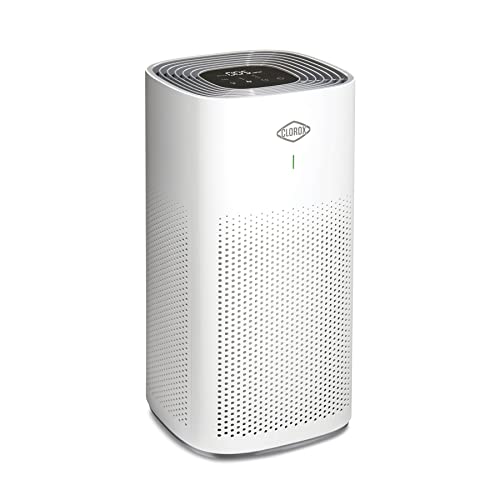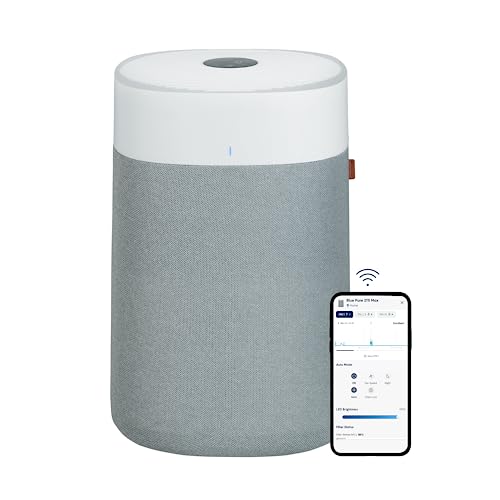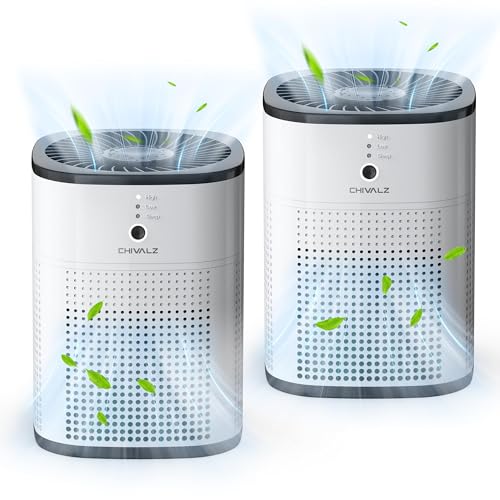Ragweed Allergy Symptoms | Know Your Facts
Ragweed allergies affect millions of people, especially during late summer and fall when ragweed plants release their pollen. Understanding ragweed allergy symptoms, diagnosis, treatment options, and prevention strategies can help you manage your condition effectively and improve your quality of life.
This guide provides comprehensive information to help you navigate the challenges of ragweed allergies.
Table of Contents
Understanding Ragweed Allergies
Ragweed is a common weed plant known for producing abundant pollen, a major allergen that triggers allergic reactions in sensitive individuals. Ragweed pollen is dispersed by the wind, making it easy for people to inhale and come into contact with it.
What is Ragweed?
Ragweed (Ambrosia artemisiifolia) is a plant that thrives in various climates, particularly in North America. It typically grows in fields, roadsides, and disturbed areas. During ragweed season, which spans from late summer to fall, the plant releases large quantities of pollen into the air.
This pollen can travel long distances, affecting people even if they are not in close proximity to ragweed plants.
How Does Ragweed Pollen Affect Allergies?
When ragweed pollen enters the respiratory system of an allergic individual, it triggers an immune response. The immune system mistakenly identifies the pollen as a harmful substance and releases histamines and other chemicals, leading to allergic symptoms.
These symptoms can vary in severity and may include sneezing, runny nose, and itchy eyes.
Common Symptoms of Ragweed Allergies
Ragweed allergy symptoms can range from mild to severe and may vary from person to person. The most common symptoms include:

1. Nasal Symptoms
- Sneezing: Frequent, repetitive sneezing is a common reaction to ragweed pollen.
- Runny Nose: A clear, watery discharge from the nose is typical.
- Nasal Congestion: A blocked or stuffy nose can lead to difficulty breathing through the nostrils.
2. Eye Symptoms
- Itchy Eyes: A feeling of irritation or itching in the eyes.
- Red, Watery Eyes: Eyes may become red and produce excess tears.
3. Throat and Mouth Symptoms
- Itchy Throat: A scratchy or itchy sensation in the throat.
- Post-Nasal Drip: Mucus dripping down the back of the throat, often causing coughing.
4. Respiratory Symptoms
- Coughing: Persistent cough due to irritation from mucus.
- Wheezing: A high-pitched whistling sound when breathing, often associated with asthma.
Table: Common Symptoms of Ragweed Allergies
| Symptom | Description |
| Sneezing | Frequent, repetitive sneezing due to pollen |
| Runny Nose | Clear, watery discharge from the nose |
| Nasal Congestion | Blocked or stuffy nose, making breathing difficult |
| Itchy Eyes | Irritation or itching in the eyes |
| Red, Watery Eyes | Eyes become red and produce excess tears |
| Itchy Throat | Scratchy or itchy feeling in the throat |
| Post-Nasal Drip | Mucus dripping down the back of the throat |
| Coughing | Persistent cough due to irritation from mucus |
| Wheezing | High-pitched whistling sound when breathing |
Diagnosis and Testing
Accurate diagnosis of ragweed allergies involves a combination of clinical evaluation and specific tests to identify allergens.

1. Clinical Evaluation
A healthcare provider will assess your symptoms, medical history, and allergy triggers. This evaluation may include:
- Symptom Review: Discussing your symptoms and their frequency.
- Medical History: Reviewing your personal and family history of allergies.
- Physical Examination: Checking for signs of nasal congestion, eye irritation, and other symptoms.
2. Allergy Testing
To confirm a diagnosis, various tests can be performed:
- Skin Prick Test: Small amounts of allergens, including ragweed pollen, are applied to the skin. If you’re allergic, a small raised bump will form.
- Blood Test: Measures the level of specific antibodies (IgE) in response to allergens. High levels indicate an allergy.
- Patch Test: Used to identify delayed allergic reactions by applying allergens to the skin for several days.
A study published in The Journal of Allergy and Clinical Immunology found that combining clinical evaluation with allergy testing significantly improved diagnostic accuracy.
Patients who underwent both methods were more likely to receive effective treatment and experience symptom relief.
Treatment Options for Ragweed Allergies

Effective management of ragweed allergies involves a combination of medications, lifestyle changes, and sometimes advanced treatments.
1. Over-the-Counter Medications
- Antihistamines: Help reduce sneezing, itching, and runny nose by blocking histamine release.
- Examples: Cetirizine (Zyrtec), and Loratadine (Claritin).
- Decongestants: Relieve nasal congestion by shrinking swollen blood vessels in the nasal passages.
- Examples: Pseudoephedrine (Sudafed) and phenylephrine.
- Nasal Corticosteroids: Reduce inflammation and swelling in the nasal passages.
- Examples: Fluticasone (Flonase) and budesonide (Rhinocort).
2. Prescription Medications
For more severe symptoms, prescription medications may be necessary:
- Stronger Antihistamines: Prescription-strength versions or combination products.
- Nasal Sprays: More potent corticosteroid sprays for persistent symptoms.
- Leukotriene Inhibitors: Medications like Montelukast (Singulair) to reduce inflammation.
3. Immunotherapy
Immunotherapy is a long-term treatment that gradually desensitizes the immune system to specific allergens.
- Subcutaneous Immunotherapy (SCIT): Allergy shots administered in increasing doses over several years.
- Sublingual Immunotherapy (SLIT): Allergen tablets or drops taken under the tongue, typically at home.
Table: Overview of Treatment Options for Ragweed Allergies
| Treatment | Description | Examples |
| Antihistamines | Block histamine release to reduce allergy symptoms | Cetirizine, Loratadine |
| Decongestants | Shrink swollen blood vessels to relieve congestion | Pseudoephedrine, Phenylephrine |
| Nasal Corticosteroids | Reduce inflammation in nasal passages | Fluticasone, Budesonide |
| Prescription Medications | Stronger or alternative treatments for severe cases | Various prescription options |
| SCIT (Allergy Shots) | Regular injections of allergens to build tolerance | Allergy shots over several years |
| SLIT (Sublingual Therapy) | Tablets or drops taken under the tongue | Allergen tablets or drops |
Prevention and Management Strategies

Preventing ragweed allergies involves minimizing exposure to pollen and implementing strategies to manage symptoms effectively.
1. Reducing Exposure
- Stay Indoors: Limit outdoor activities during high pollen counts. Use air conditioning and keep windows closed.
- Use Air Purifiers: Equip your home with HEPA filters to trap pollen and improve indoor air quality.
- Seal Windows and Doors: Prevent pollen from entering your home by keeping windows and doors closed during peak pollen times.
- Wash Bedding and Clothing: Regularly launder clothes and bedding to remove pollen residues.
2. Managing Symptoms
- Monitor Pollen Forecasts: Check local pollen counts and plan outdoor activities accordingly.
- Use Nasal Rinses: Rinse nasal passages with saline to remove pollen and reduce symptoms.
- Consult a Healthcare Provider: For personalized advice and treatment plans, especially if over-the-counter medications are insufficient.
A survey conducted by the American College of Allergy, Asthma, and Immunology found that individuals who used air purifiers and monitored pollen counts experienced fewer allergy symptoms and reported a higher quality of life during ragweed season.
When to Seek Professional Help

While many individuals manage their ragweed allergy symptoms effectively with over-the-counter treatments and preventive measures, there are times when professional help is necessary.
Seeking medical advice can provide you with tailored treatment options and help prevent complications. Here’s when you should consider consulting a healthcare provider:
1. Persistent or Severe Symptoms
If your symptoms are severe or persist despite over-the-counter treatments, it may be time to see a healthcare professional. Persistent symptoms can significantly impact your quality of life and may require stronger or alternative treatment options.
- Chronic Nasal Congestion: If nasal congestion persists despite medications, it could indicate severe allergic rhinitis or sinusitis.
- Difficulty Breathing: Shortness of breath, wheezing, or persistent cough could suggest worsening asthma or other respiratory conditions.
2. Ineffectiveness of Standard Treatments
If standard treatments are ineffective or cause unwanted side effects, a healthcare provider can recommend alternative therapies or adjustments to your treatment plan.
- Allergy Shots or SLIT: If over-the-counter medications are insufficient, immunotherapy may be recommended.
- Side Effects: If medications cause significant side effects, a provider can adjust the dosage or prescribe alternatives.
3. Complications or Advanced Treatments
If you experience complications related to your allergies or require advanced treatment options, consulting a specialist is crucial.
- Frequent Sinus Infections: Recurrent sinus infections may require additional treatment or evaluation for other conditions.
- Severe Asthma: For individuals with asthma exacerbated by ragweed allergies, specialized care may be necessary.
A review in The Annals of Allergy, Asthma & Immunology highlighted that early intervention by allergists led to improved symptom control and quality of life in patients with severe ragweed allergies.
Professional evaluation and tailored treatment plans were associated with better outcomes and fewer complications.
________________________
FAQs (Frequently Asked Questions)
1. What is ragweed and why does it cause allergies?
Ragweed is a common weed plant known for producing large amounts of pollen. This pollen is a major allergen, especially during the late summer and early fall when ragweed plants release their pollen into the air. The immune system of individuals with ragweed allergies mistakenly identifies this pollen as a harmful substance, triggering allergic reactions such as sneezing, runny nose, and itchy eyes.
2. How can I tell if my symptoms are due to ragweed allergies?
Symptoms of ragweed allergies often include:
Nasal congestion
Runny nose
Sneezing
Itchy, watery eyes
Post-nasal drip
Coughing
To confirm if ragweed is the cause, you can consult an allergist for testing, such as a skin prick test or blood test, to identify specific allergens affecting you.
3. What are the most effective treatments for ragweed allergies?
Effective treatments for ragweed allergies include:
1. Over-the-counter medications: Antihistamines, decongestants, and nasal corticosteroids.
2. Prescription Medications: Stronger antihistamines or nasal sprays.
3. Immunotherapy: Allergy shots (SCIT) or sublingual tablets (SLIT) to build tolerance.
4. Natural Remedies: Nasal saline rinses, quercetin, and acupuncture.
4. How can I reduce my exposure to ragweed pollen?
To minimize exposure to ragweed pollen:
1. Stay indoors during high pollen counts.
2. Use air purifiers with HEPA filters.
3. Seal windows and doors to prevent pollen from entering your home.
4. Wash bedding and clothing frequently.
5. Check local pollen forecasts to plan outdoor activities.
5. When should I seek professional help for my ragweed allergies?
Consider seeking professional help if:
1. Your symptoms are severe or persist despite over-the-counter treatments.
You experience difficulty breathing, chronic sinus infections, or frequent asthma attacks.
2. Standard treatments are ineffective or cause unwanted side effects.
You suspect complications or need advanced treatment options like immunotherapy.
6. Can immunotherapy cure ragweed allergies?
Immunotherapy does not cure ragweed allergies but can significantly reduce the severity of symptoms and provide long-term relief even after treatment ends. It involves gradually desensitizing the immune system to ragweed pollen, which can lead to sustained improvement in symptoms over time.
Disclaimer: The views and opinions expressed in this review are based on the author’s personal experience and research. Individual results may vary. Always refer to the manufacturer’s guidelines and instructions for proper usage and maintenance of the product.
Lassowond
-
 Clorox Air Purifiers for Home, True HEPA Filter, Large Rooms up to 1,500 Sq Ft, Removes 99.9% of Mold, Viruses, Wildfire Smoke, Allergens, Pet Allergies, Dust, AUTO Mode, Whisper Quiet$119.99
Clorox Air Purifiers for Home, True HEPA Filter, Large Rooms up to 1,500 Sq Ft, Removes 99.9% of Mold, Viruses, Wildfire Smoke, Allergens, Pet Allergies, Dust, AUTO Mode, Whisper Quiet$119.99 -
 Shark Air Purifiers for Home Large Room with NeverChange Air Filter, 5 Year HEPA Filter, Covers 650 Sq. ft, Odor Neutralizer and Clean Sense Technology, Removes 99.98% of Dust & Allergens, HP152$179.99
Shark Air Purifiers for Home Large Room with NeverChange Air Filter, 5 Year HEPA Filter, Covers 650 Sq. ft, Odor Neutralizer and Clean Sense Technology, Removes 99.98% of Dust & Allergens, HP152$179.99 -
 Nuwave OxyPure ZERO Air Purifiers with 20 Yr Washable and Reusable Bio Guard Tech Air Filter, Large Room Up to 2002 Ft², Air Quality Monitor, 0.1 Microns, 100% Capture Allergies, Smoke, Dust, Pollen$359.99
Nuwave OxyPure ZERO Air Purifiers with 20 Yr Washable and Reusable Bio Guard Tech Air Filter, Large Room Up to 2002 Ft², Air Quality Monitor, 0.1 Microns, 100% Capture Allergies, Smoke, Dust, Pollen$359.99 -
 AeraMax Air Purifier for Allergies$211.82
AeraMax Air Purifier for Allergies$211.82 -
 WeGuard Air Purifiers K300 HEPA$69.99
WeGuard Air Purifiers K300 HEPA$69.99 -
 HIMOX Air Purifier HEPA 14 | 1560 Sqft$180.68
HIMOX Air Purifier HEPA 14 | 1560 Sqft$180.68 -
 Fellowes AeraMax 100 Air Purifier for Mold, Odors, Dust, Smoke, Allergens and Germs with True HEPA Filter and 4-Stage Purification – 9320301, White, Small$105.54
Fellowes AeraMax 100 Air Purifier for Mold, Odors, Dust, Smoke, Allergens and Germs with True HEPA Filter and 4-Stage Purification – 9320301, White, Small$105.54 -
 BLUEAIR Air Purifiers for Large Home Room, HEPASilent Air Purifiers for Bedroom, Air Purifiers for Pets Allergies Air Cleaner, Smart Air Purifier, Virus Air Purifier for Dust Mold, Blue Pure 211i Max$244.99
BLUEAIR Air Purifiers for Large Home Room, HEPASilent Air Purifiers for Bedroom, Air Purifiers for Pets Allergies Air Cleaner, Smart Air Purifier, Virus Air Purifier for Dust Mold, Blue Pure 211i Max$244.99 -
 Air Purifiers for Bedroom, CHIVALZ Air Purifiers for Home, Quiet Air Cleaner with 24dB Sleep Mode, H13 HEPA Filter for Allergies, Pollen, Smoke, Pet Dander, Dust, White & Black (2 Pack)$59.84
Air Purifiers for Bedroom, CHIVALZ Air Purifiers for Home, Quiet Air Cleaner with 24dB Sleep Mode, H13 HEPA Filter for Allergies, Pollen, Smoke, Pet Dander, Dust, White & Black (2 Pack)$59.84 -
 HoMedics TotalClean 4-in-1 Tower Air Purifier, 360-Degree HEPA Filtration for Allergens, Dust and Dander with Ionizer for Home, Office and Desktop, Night-Light and Essential Oil Aromatherapy (White)$53.75
HoMedics TotalClean 4-in-1 Tower Air Purifier, 360-Degree HEPA Filtration for Allergens, Dust and Dander with Ionizer for Home, Office and Desktop, Night-Light and Essential Oil Aromatherapy (White)$53.75 -
 2 Pack Air Purifiers for Bedroom 5 Layers H13 HEPA Air Filter, 22db Quiet Air Purifiers for Home Pets,Desktop,Kitchen,Filter 99.99% Smoke,Pollen, Pet Dander,Dust, Ozone Free, Available for California$79.99
2 Pack Air Purifiers for Bedroom 5 Layers H13 HEPA Air Filter, 22db Quiet Air Purifiers for Home Pets,Desktop,Kitchen,Filter 99.99% Smoke,Pollen, Pet Dander,Dust, Ozone Free, Available for California$79.99 -
 Dayette HEPA Air Purifiers for Home Large Room, CADR 400+ m³/h Up to 1720 Sq Ft, H13 Ture Hepa Air Filter Cleaner for Allergies Pet Dander Smoke Dust with 22dB Sleep Mode for Bedroom, White$118.99
Dayette HEPA Air Purifiers for Home Large Room, CADR 400+ m³/h Up to 1720 Sq Ft, H13 Ture Hepa Air Filter Cleaner for Allergies Pet Dander Smoke Dust with 22dB Sleep Mode for Bedroom, White$118.99















*This page contains affiliate links, and We earn commissions from qualifying purchases through these links. Please review our Affiliate Disclaimer for details.